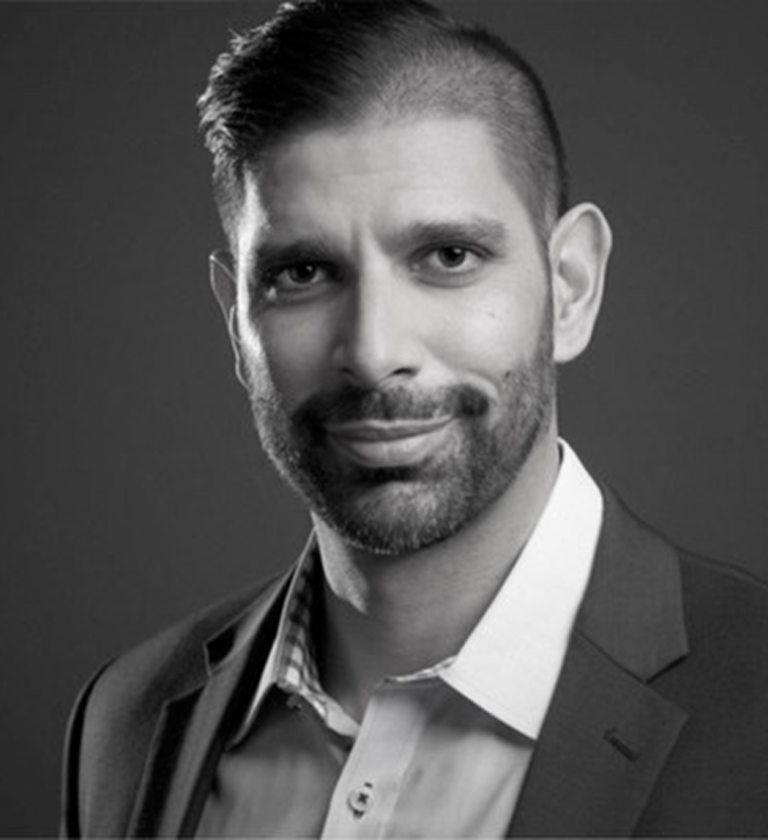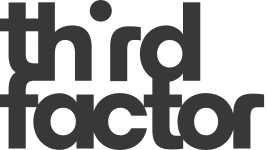Imagination, belief and energy are precious resources that need to be carefully nurtured when high performance is the goal. At the same time, saddling someone with an unattainable target because you don’t want to dampen their enthusiasm risks a catastrophic failure that can destroy self-confidence and trust in the coach.
An ambitious but naïve performer setting an unrealistic goal for themselves is commonplace: a direct report applies for a role where they are unlikely to be the successful candidate; an individual you coach sets a performance target for themselves based on their best year ever when headwinds are coming on strong; or your team is running a pilot project that’s very unlikely to get the green light to proceed.
How can you communicate belief in the performer, while at the same time protecting them from experiencing what could be a devastating setback?
A moment of insight
One such moment for me happened over 20 years ago when I was working as a swimming coach in Thousand Oaks, California. I was coaching an adult swimming group – or as we called them, “Masters Swimmers” – to prepare them for the first competition of the summer.
Masters swimming competitions are interesting events: the beer tent opening is as big a deal as the performances in the pool. But, make no mistake, the performances matter to the athletes.
“I immediately realized I had made a mistake”
I was doing some goal-setting work with an athlete who had recently taken up the sport and asked her what she thought would be a good goal time for her 100-meter freestyle. Her answer was completely unrealistic, so I suggested a much more attainable goal. The smile vanished from her face, her shoulders slumped, and I immediately realized I had made a mistake.
In my well-intentioned effort to save this performer from disappointment, I had limited what she could imagine for herself, communicated a lack of belief in her capabilities and cut off a key source of energy.
Don’t fear negative emotion
In that moment, my gut reaction was to spare this person from setting herself up for failure. What I’ve learned is exceptional coaches know that negative emotion is an inherent part of the journey of growth and development. Progress isn’t linear.
When people are testing their limits and doing things that they’ve never done before they will experience setbacks from time to time. And when those setbacks occur, they will experience negative emotions such as frustration or disappointment. But people can survive frustration and disappointment.
On the other hand, if you encourage them to set safe goals that you know they will achieve, you limit the powerful “pull forward” that comes with imagining what might be possible.
Frame a range of outcomes
While negative emotion is a powerful tool, the coach still needs to prevent a devastating failure. Where I suggested a new goal in place of the one my swimmer had set, I could have included it in a range of possible outcomes that framed a realistic performance as a level of success.
In practice, this looks like a series of goals that includes the most ideal outcome and also a few other outcomes that are more realistic and attainable.
- Goal “A” might represent a nearly perfect result where they execute flawlessly and all the breaks fall their way.
- Goal “B” might represent a good result where they execute relatively well, but not perfectly, and 50% of the breaks fall their way.
- And finally, Goal “C” might represent a result they can live with where they make a few execution mistakes and experience some bad luck in the process.
Framing targets in this manner helps performers to dream about what might be possible while at the same time preparing them for when the ideal outcome does not occur. This approach is also a useful way to help a perfectionist objectively assess their performances.
“Perfectionists often evaluate any imperfect performance as failure”
Perfectionists often evaluate any imperfect performance as failure. By working with the performer to set a range of target outcomes in advance, the coach is then in a position to help them evaluate their performance against objective criteria.
This often results in the perfectionist being forced to admit that their “failure” was in fact a “good performance” or at worst “one they can live with.”
Blend empathy and accountability
If the performer doesn’t achieve their ideal outcome, help them harness the negative emotion and use it to fuel growth rather than rushing in to try to make them feel better.
Do this by first allowing them to sit with the emotion of the moment. Be there to help them process the experience by providing a listening ear. And then, when the performer seems ready, ask them for their thoughts on how to move forward. And then work with them to create a plan to increase the likelihood of an improved result next time.
Re-writing history
If I could go back in time and revisit that moment on the pool deck when that athlete suggested an unrealistic goal, what would I do?
I would have accepted that negative emotion is a natural part of the growth process. And rather than trying to shield them from the possibility of failure, I would have allowed them to dream about what might be possible.
I would have helped them set a range of goals. And if they failed to achieve their ideal outcome, I would have helped them process the disappointment and then channel that energy into the process of getting better.
Of course it was that moment of less than stellar coaching, and the resulting disappointment I felt with myself, that ultimately helped me find a better way forward.
The Meta-Skilled Organization: Building the Capability to Evolve
Skills allow us to execute. Meta-skills like empathy, resilience, creativity, and self-awareness allow us to evolve.
As organizations and industries face increasingly rapid change and disruption, in which job descriptions are fluid and agility is essential, these meta-skills are increasingly at the heart of sustained success.
The ability to adapt is what makes us future-proof, and what separates individuals and teams that
endure from those who are replaced.
In this webinar, Third Factor CEO and author of The Power of Pressure,
Dane Jensen, will illustrate how the capability to evolve can be broken down into six core meta-skills and outline practical skills and strategies you can use to cultivate your own ability to adapt.
You’ll gain new insights into what’s really required for future-proofing yourself and your organization, and discover six core meta-skills across three categories that foster personal evolution.

You should attend if:
- You want to build your team or organization’s resilience to rapid change
- You’re responsible for change management at a project or organizational level
- You’re charged with building competencies of adaptability, flexibility, innovation, or problem solving
- You want to build your own capability to adapt to an uncertain future
The Meta-Skilled Organization
Sorry we missed you
This event has passed, but it won’t be the last. Be the first to know about future webinars from Third Factor by entering your information below.
 About the presenter:
Dane Jensen
About the presenter:
Dane Jensen is the CEO of Third Factor, the author of
The Power of Pressure: Why Pressure Isn’t The Problem, It’s The Solution, an acclaimed speaker, an instructor at Queen’s University and the University of North Carolina, and a regular contributor to Harvard Business Review.
How Leaders Enable High-Performing Hybrid Teams
The transition to a hybrid work model is replete with hazard and risk: Can our people adapt to yet another major change in the way we do business?
It also presents a unique opportunity to create new systems that work for companies and people – a culture of high performance in which people are truly committed. To capitalize on this opportunity, organizations need leaders who are motivated by a compelling vision of what’s possible and can adapt their skills to shape their environment.
In this webinar, Third Factor Principal Trainer,
Garry Watanabe, will uncover the opportunity present in the transition to hybrid work and showcase how leaders can get the most from it. The session will explore the challenges and advantages of hybrid work from a leader’s perspective, present an approach for building consensus and commitment in the face of novel problems, and introduce strategies to overcome some of hybrid work’s biggest challenges.
You’ll leave with an exciting vision for a high-performing hybrid culture, a clear understanding of your people leaders’ assets and challenges in a hybrid environment, and insight to how leadership competencies can be adapted for hybrid teams.
You should attend if:
- You’re responsible for maintaining employee engagement in the transition to a hybrid work environment
- You’re responsible for developing leadership competency for a hybrid model of work
- You’re a senior leader concerned about hybrid work’s impact on performance
- You want new ideas and practical tools for leading your own hybrid team
How Leaders Enable High-Performing Hybrid Teams
Sorry we missed you
This event has passed, but it won’t be the last. Be the first to know about future webinars from Third Factor by entering your information below.
 About the presenter:
Garry Watanabe
About the presenter:
Garry Watanabe is a lawyer, an instructor at the Smith School of Business at Queen’s University, an inspirational speaker, and holds a Masters Degree in Sport Psychology. Whether he’s on the pool deck, in the classroom, or at the lectern, Garry is the consummate coach.
3×4 Coaching
As supply chain issues and staffing challenges continue to hammer organizations, there are two critical moments that determine whether people will stay committed and rise to the challenge: The crisis of engagement, when people realize their path forward is harder than they thought it would be; and the crisis of meaning, the emotional low that makes them question whether to continue.
To stay committed and see the journey through, people need three things from their leader: clarity on what they’re supposed to be doing and why it matters; the skills and abilities to be confident in their job; and a sense that they’re seen and appreciated.
In this webinar, Third Factor Principal Trainer,
Garry Watanabe, will synthesize our 30 years of experience working with world-class coaches and reveal a simple framework to give leaders the mindset, skills and tools to keep people committed – and ultimately drive results.
You’ll leave inspired with fresh ideas for addressing problems caused by the “great resignation” and other pandemic-related disruption, and a clear image of how you can use coaching at all levels of your organization to fight burnout and keep people engaged.
You should attend if:
- You’re responsible for maintaining employee engagement and retention despite serious disruption
- You’re an L&D practitioner frustrated by other coaching programs that deliver poor results
- You’re a senior leader looking to drive performance without sacrificing a positive culture
- You want a new approach for getting commitment and results from the people you lead
Coaching in Critical Moments
Sorry we missed you
This event has passed, but it won’t be the last. Be the first to know about future webinars from Third Factor by entering your information below.
 About the presenter:
Garry Watanabe
About the presenter:
Garry Watanabe is a lawyer, an instructor at the Smith School of Business at Queen’s University, an inspirational speaker, and holds a Masters Degree in Sport Psychology. Whether he’s on the pool deck, in the classroom, or at the lectern, Garry is the consummate coach.
As people leave their jobs in record numbers, organizations are facing two urgent challenges: increase engagement to reduce churn; and prepare those who stay to adapt to the rapidly changing needs of the business.
The solution to both of these challenges is to invest in people and get them excited about their own growth and development. People are more likely to stay – and more resilient to changing demands – when they feel a sense of growth, contribution and connection. But with 40% of employees saying they’re likely to leave their job within 6 months1, time is running out.
Career Conversations is a highly interactive one-hour session that puts people leaders at the centre of a strategy for helping employees develop a clear and compelling view of their path forward in the organization. Leaders are introduced to the “why,” “what,” and “how” of career conversations, and begin engaging with their people before the hour is up. The program can be quickly implemented and scaled to the entire organization, effecting rapid, positive change.
In this 60-minute webinar, Third Factor Associate Trainer Rishi Behari will introduce the Career Conversations program and unpack the leader’s toolkit for holding effective developmental conversations with their people. You’ll leave with a compelling image of what effective career conversations look like, new skills for converting that image into action, and a plan for holding career conversations with clear goals and accountability built in.
You should attend if:
- You are in an HR role and have an urgent need to build employee engagement
- You are a senior leader looking for strategies to adapt to a rapidly changing workforce
- You are responsible for leadership development and need scalable ideas for creating a culture of development
- You want to build your own ability to hold effective career conversations with the people on your team
SORRY WE MISSED YOU
This event has passed, but it won’t be the last. Be the first to know about future webinars from Third Factor by entering your information below.
 About the presenter:
About the presenter:
Rishi Behari is a professional coach, consultant, teacher, facilitator and speaker who has carved out an unlikely career path amidst adversity, pressure, and uncertainty, having grown up in an interracial family in the heart of the Canadian prairies.
Rishi has dedicated his professional life to helping others discover and realize their passions, dreams, and potential. He is known for injecting personality, humor, wit and infectious energy into his work and teaching. He draws from his and his students’ personal experiences in order to create an open, engaging and safe environment for leaders at all levels. His relentless desire to explore, innovate and challenge the status quo have made him a multidisciplinary force for igniting positive change in people and organizations.
Rishi comes to the Third Factor team with an impressive and eclectic background across industries, having worked with some of the top schools, businesses, and organizations in the world. His range of experiences include raising ten thousand dollars at the age of nineteen to fund his first entrepreneurial venture, appearing as a business expert on live international television, helping to establish the world’s first premier business program in artificial intelligence, sitting on the advisory board for Canada’s first student-run AI startup incubator, working in the not-for-profit sector to fight systemic inequality and discrimination, teaching in academia and over five years as the VP of a multinational consulting firm.
Rishi is a former university athlete in soccer, and an avid sports and travel enthusiast, having traveled to two World Cups of Soccer, the European Cup of soccer, and the Winter Olympics. His academic credentials include BAs in psychology and sociology and an MBA from the Smith School of Business at Queen’s University and IE Business School in Madrid, Spain.
1 Source: McKinsey
 You should attend if:
You should attend if:
 About the presenter:
Dane Jensen is the CEO of Third Factor, the author of The Power of Pressure: Why Pressure Isn’t The Problem, It’s The Solution, an acclaimed speaker, an instructor at Queen’s University and the University of North Carolina, and a regular contributor to Harvard Business Review.
About the presenter:
Dane Jensen is the CEO of Third Factor, the author of The Power of Pressure: Why Pressure Isn’t The Problem, It’s The Solution, an acclaimed speaker, an instructor at Queen’s University and the University of North Carolina, and a regular contributor to Harvard Business Review.

 About the presenter:
About the presenter:
 About the presenter:
About the presenter: